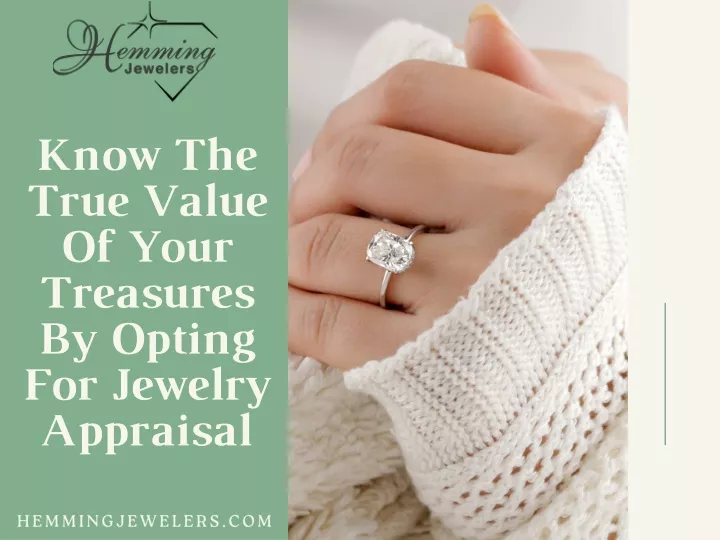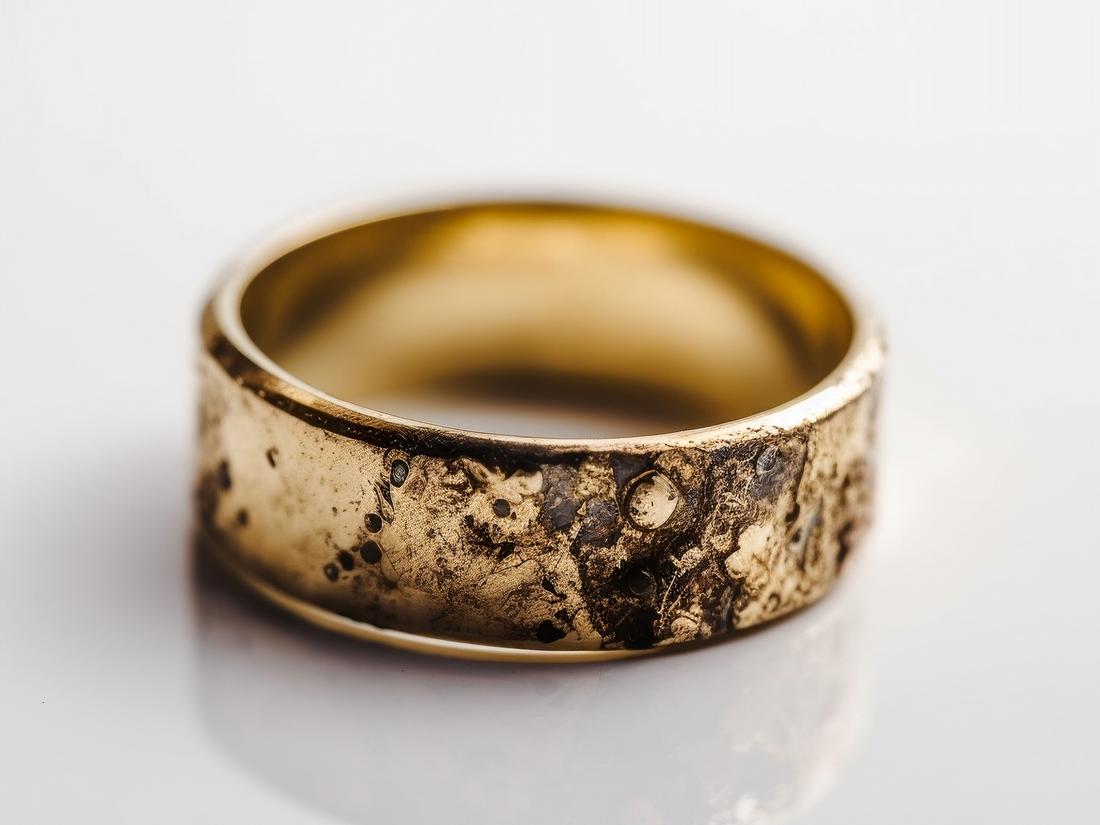Unveiling The Value Of Your Treasures: A Comprehensive Guide To Jewelry Appraisal
Unveiling the Value of Your Treasures: A Comprehensive Guide to Jewelry Appraisal
Related Articles: Unveiling the Value of Your Treasures: A Comprehensive Guide to Jewelry Appraisal
Introduction
In this auspicious occasion, we are delighted to delve into the intriguing topic related to Unveiling the Value of Your Treasures: A Comprehensive Guide to Jewelry Appraisal. Let’s weave interesting information and offer fresh perspectives to the readers.
Table of Content
- 1 Related Articles: Unveiling the Value of Your Treasures: A Comprehensive Guide to Jewelry Appraisal
- 2 Introduction
- 3 Unveiling the Value of Your Treasures: A Comprehensive Guide to Jewelry Appraisal
- 3.1 The Significance of Jewelry Appraisal
- 3.2 Where to Get Your Jewelry Appraised: A Comprehensive Overview
- 3.3 Factors Influencing Jewelry Value
- 3.4 Tips for Choosing a Jewelry Appraiser
- 3.5 Frequently Asked Questions About Jewelry Appraisal
- 4 Closure
Unveiling the Value of Your Treasures: A Comprehensive Guide to Jewelry Appraisal

Jewelry, with its intricate designs and precious materials, holds sentimental and monetary value. Understanding the worth of these treasured possessions is crucial for various reasons, from insurance purposes to informed selling decisions. This comprehensive guide explores the different avenues for obtaining a jewelry appraisal, providing a clear understanding of the process and its benefits.
The Significance of Jewelry Appraisal
A jewelry appraisal serves as a formal document that establishes the current market value of a piece. This valuation is based on a thorough examination of the jewelry’s materials, craftsmanship, condition, and current market trends. The appraisal process offers several advantages, including:
- Insurance Coverage: Accurate appraisals provide proof of value, ensuring adequate insurance coverage in case of loss or damage.
- Inheritance and Estate Planning: Appraisals aid in determining the fair market value of jewelry for estate planning purposes, ensuring equitable distribution among heirs.
- Selling and Trading: Appraisals provide a realistic assessment of the market price, allowing for informed decisions when selling or trading jewelry.
- Tax and Legal Purposes: Appraisals are often required for tax purposes, such as reporting inheritances or donating jewelry to charitable organizations.
Where to Get Your Jewelry Appraised: A Comprehensive Overview
The choice of appraisal service depends on the type of jewelry, the purpose of the appraisal, and the desired level of expertise. Here’s a detailed breakdown of the options available:
1. Independent Jewelry Appraisers:
Independent appraisers are professionals who specialize in evaluating jewelry. They are often members of recognized organizations like the American Society of Appraisers (ASA) or the Gemological Institute of America (GIA).
Advantages:
- Expertise: Independent appraisers possess extensive knowledge and experience in evaluating various types of jewelry, including antique, vintage, and modern pieces.
- Objectivity: They provide unbiased valuations, as they are not affiliated with jewelers or other entities with vested interests.
- Detailed Reports: Appraisals often include comprehensive reports detailing the jewelry’s characteristics, market value, and supporting documentation.
Disadvantages:
- Cost: Independent appraisals can be more expensive than other options, as they involve a higher level of expertise and detailed analysis.
- Availability: Finding a qualified independent appraiser may require some research and may not be readily available in all locations.
2. Jewelry Stores:
Many jewelry stores offer appraisal services as part of their offerings. These appraisals are typically conducted by experienced jewelers with knowledge of current market values.
Advantages:
- Convenience: Appraisals can be conducted directly at the jewelry store, offering convenience and accessibility.
- Cost-Effective: Jewelry store appraisals are often more affordable than independent appraisals, particularly for simple pieces.
Disadvantages:
- Limited Expertise: Jewelers may not possess the same level of expertise as independent appraisers, particularly for complex or antique pieces.
- Potential Bias: Appraisals conducted by jewelers may be influenced by their desire to sell jewelry, potentially leading to inflated valuations.
3. Auction Houses:
Reputable auction houses like Sotheby’s and Christie’s offer appraisal services for high-value jewelry. Their expertise lies in assessing the historical significance, rarity, and market demand of collectible pieces.
Advantages:
- High-End Expertise: Auction houses possess exceptional knowledge of rare and valuable jewelry, providing accurate valuations for collectible pieces.
- International Market Reach: They have access to a global network of collectors and buyers, ensuring valuations reflect the international market.
Disadvantages:
- Cost: Auction house appraisals are generally the most expensive option, due to their expertise and access to a wider market.
- Limited Scope: They primarily focus on high-value items, making them unsuitable for everyday jewelry.
4. Insurance Companies:
Some insurance companies offer appraisal services as part of their coverage packages. These appraisals are typically conducted by approved appraisers who meet the company’s standards.
Advantages:
- Convenience: Appraisals are often included in insurance policies, making them convenient for insured individuals.
- Cost-Effective: Appraisals may be included in the insurance premium, reducing the cost for policyholders.
Disadvantages:
- Limited Scope: Insurance company appraisals may be limited to specific types of jewelry or coverage amounts.
- Potential Bias: Appraisals conducted by insurance companies may be influenced by their desire to minimize payouts.
5. Online Appraisal Services:
Several online platforms offer appraisal services, allowing for convenient and remote valuations. These services typically rely on photographs and descriptions provided by the customer.
Advantages:
- Convenience: Online appraisals are easily accessible and can be conducted from anywhere with an internet connection.
- Cost-Effective: Online services often offer more affordable rates compared to traditional appraisals.
Disadvantages:
- Limited Accuracy: Online appraisals rely on visual information and may not be as accurate as in-person evaluations.
- Lack of Expertise: Online services may not have the same level of expertise as professional appraisers.
Factors Influencing Jewelry Value
The value of jewelry is determined by a combination of factors, including:
- Materials: Precious metals like gold, platinum, and silver, as well as gemstones like diamonds, sapphires, and rubies, contribute significantly to value.
- Carat Weight: The weight of gemstones, particularly diamonds, is a key factor in determining value.
- Cut and Clarity: The quality of a gemstone’s cut and clarity affects its brilliance and overall appearance, impacting its value.
- Color: Gemstones are graded based on their color, with rarer and more desirable colors commanding higher prices.
- Craftsmanship: The quality of the jewelry’s design, craftsmanship, and construction influences its value.
- Brand and Origin: Jewelry from renowned designers or with a specific historical significance often commands higher prices.
- Condition: The condition of the jewelry, including any damage or wear, affects its value.
- Market Trends: Current market trends and demand for specific materials and designs can influence jewelry prices.
Tips for Choosing a Jewelry Appraiser
Selecting the right appraiser is crucial for obtaining an accurate and reliable valuation. Consider the following factors:
- Credentials and Experience: Look for appraisers with recognized credentials, such as certifications from the ASA, GIA, or other reputable organizations.
- Specialization: Choose an appraiser specializing in the type of jewelry you need appraised, whether antique, vintage, or modern.
- Reputation: Seek recommendations from trusted sources or check online reviews to gauge the appraiser’s reputation and expertise.
- Fees and Services: Inquire about the appraiser’s fees, payment terms, and the scope of services included in the appraisal.
- Transparency: Ensure the appraiser provides clear and transparent documentation, including the appraisal report, supporting documentation, and any additional information.
Frequently Asked Questions About Jewelry Appraisal
1. How Often Should I Get My Jewelry Appraised?
It is recommended to have your jewelry appraised every 3-5 years to account for market fluctuations and changes in value.
2. What Information Should I Provide to the Appraiser?
Provide the appraiser with any relevant information, such as purchase receipts, certificates of authenticity, and any history of the jewelry.
3. How Long Does a Jewelry Appraisal Take?
The time required for an appraisal varies depending on the complexity of the jewelry and the appraiser’s workload. It can range from a few days to several weeks.
4. How Much Does a Jewelry Appraisal Cost?
Appraisal fees vary depending on the appraiser, the type of jewelry, and the complexity of the appraisal. Generally, expect to pay a few hundred dollars for a standard appraisal.
5. Can I Use an Online Appraisal Service for Insurance Purposes?
While online appraisal services can provide a general estimate, they are not typically accepted by insurance companies for coverage purposes.
6. What Should I Do If I Disagree With the Appraisal Value?
If you disagree with the appraisal value, you can seek a second opinion from another qualified appraiser.
Conclusion:
Obtaining a jewelry appraisal is an essential step in protecting your valuable possessions. By understanding the different appraisal options, considering the factors that influence value, and choosing a qualified appraiser, you can ensure an accurate and reliable valuation. This information empowers you to make informed decisions regarding insurance coverage, estate planning, selling, and other important aspects of jewelry ownership.








Closure
Thus, we hope this article has provided valuable insights into Unveiling the Value of Your Treasures: A Comprehensive Guide to Jewelry Appraisal. We appreciate your attention to our article. See you in our next article!
You may also like
Recent Posts
- The Enduring Appeal Of XP Jewelry: A Timeless Symbol Of Achievement
- A Global Tapestry Of Adornment: Exploring World Collections Of Jewelry
- The Evolution Of A Brand: Understanding The Name Change Of Lola Rose Jewellery
- Navigating The UK’s Jewelry Wholesale Landscape: A Comprehensive Guide
- The Allure Of Effy Jewelry: Unveiling The Reasons Behind Its Premium Pricing
- The Enduring Appeal Of Gold Jewelry: A Timeless Investment
- The Art Of Harmony: Elevating Your Style Through Accessory Coordination
- The Comprehensive Guide To Wholesale Jewelry Supplies Catalogs: A Treasure Trove For Jewelry Makers And Businesses
Leave a Reply